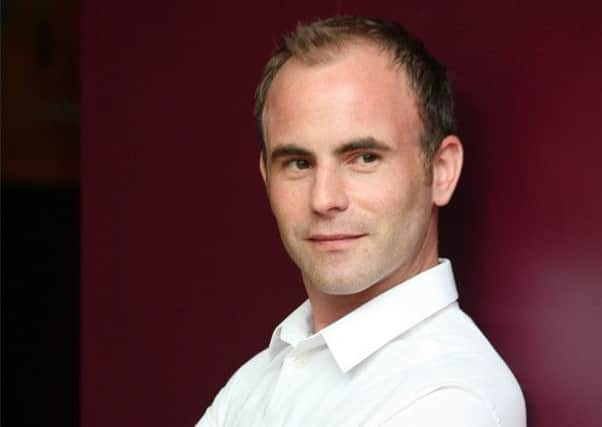Joyce McMillan: Sansom’s first season exciting and relevant


It’s 16 months, now, since the company’s founding director Vicky Featherstone announced that she was leaving to become artistic director at the Royal Court in London, and almost a year since Laurie Sansom, formerly of the Royal & Derngate Theatres in Northampton, arrived as her replacement. And in the meantime, there’s been a long playing-out of projects already planned while Featherstone was still in post, along with multiple revivals of past successful shows – including David Greig’s great pub play The Strange Undoing Of Prudencia Hart, on tour in North America as I write.
Earlier this week, though, Laurie Sansom finally unveiled a programme of new work for 2014 that is entirely of his own making; and thrilling stuff it is, full of a dauntless determination to wire into Scotland’s fraught debate on the independence referendum. The centrepiece of the programme – launched at a major Edinburgh press conference on Monday, in the presence of Scottish Culture Minister Fiona Hyslop and Edinburgh International Festival director Jonathan Mills – is a mighty new festival trilogy of Scottish history plays about the first three Stewart kings, James I, James II and James III. Written by leading Scottish playwright Rona Munro, funded like much of the NTS’s international activity by the Scottish Government’s Expo Fund, and co-produced by the NTS and the Edinburgh Festival with the National Theatre in London, the trilogy will star the fabulous Sofie Gåbrøl – Sarah Lund in the television series The Killing – as Scotland’s Danish-born Queen Margaret; the project could hardly be more glamorous, or the stakes for Laurie Sansom, who will direct the plays himself, any higher.
Advertisement
Hide AdWhat’s perhaps most significant about the programme Sansom announced this week, though, is the extent to which it continues to honour the radical thinking behind the idea of the NTS, which is famously a national theatre without walls, committed to exploring the outer limits of 21st century theatrical performance. Apart from the giant King James Trilogy, the year’s programme – under the general title Dear Scotland – includes a whole range of fascinating fragments designed to build up a portrait of contemporary Scotland in its year of decision; from June’s new series of live-streamed Five Minute Plays from across the country on the Yes-No-Don’t-Know referendum theme, through a Dear Scotland project with the National Portrait Gallery which invites leading writers to address the nation in the voices of people portrayed in the collection, to a huge Blabbermouth event, conceived and curated by NTS associate Graham McLaren, which will take place at the Assembly Hall on the Mound from noon to midnight on the day before the referendum.
Add a brand-new show about cult Scottish genius Ivor Cutler, and a great site-specific community piece The Tin Forest, set among the once-busy cranes of the Clyde in Glasgow, and you have an NTS annual programme that would clearly win the nod of approval from the company’s founders; but that also seems very much of its time, threaded into the history of a momentous year for Scotland. The hope of everyone involved must be that this year’s work will contribute to the long process of bringing what’s still often a relatively marginal art-form, compared with music or film, closer to the heart of Scottish life. And as Laurie Sansom pointed out at Monday’s press conference, the overall title of the year’s work, Dear Scotland, offers at least a hint of what theatre can do, at a time of maximum political tension and division; how it can remind us of the intense backbeat of affection and love that binds us to the place, even as we argue over its future, and offer us a safe place to let our ideas and feelings run free, without always having to pretend to the neat conclusions that politics sometimes demands.